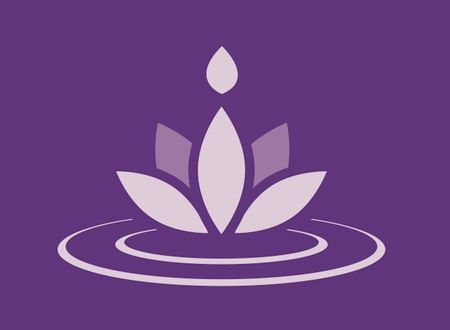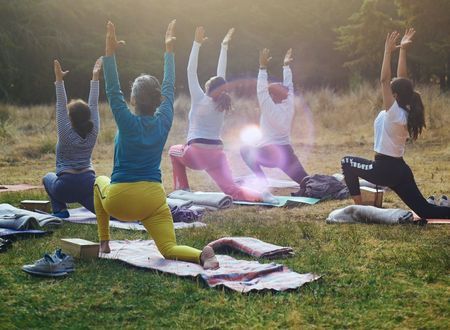Life is life; the rest is the meaning we give to it.
This headline has been my motto for decades.
It repeats itself in my reminders as a life principle. I consciously repeat it every day to create my own meaning to live my own life by balancing the activities of my lower and higher self.
In this post, I introduce a dozen of habits and mindsets that give me adequate energy to go on effortlessly, color my life, and add meaning to my existence on this planet.
These habits allowed me to take personal responsibility for my life and empowered me to enjoy it with desired happiness and good health. Therefore, I pass along this tacit knowledge hoping it might inspire others.
1 — Choosing Happiness for No Reason
I don’t search for happiness as it cannot be found by seeking. As Gandhi articulated, “Happiness is when what you think, what you say, and what you do are in harmony.
The easiest and shortest path to happiness is to choose it intentionally for no reason. Starting and ending the day with gratitude is the key to experiencing happiness.
Starting my day with a spark, continuing mindfully, and ending peacefully enabled me to live with joy, peace, tranquility, and occasional euphoria.
2 — The Importance and Value of Present Time
I deliberately live in the moment, as thinking too much about the past and future creates unpleasant emotions.
Even though some events and circumstances might be painful in the present time, immersing myself in these emotions bring joy and makes me more creative and productive.
Living in the now without regretting the past and worrying about the future is my secret to health, well-being, and life satisfaction.
3 — Therapeutic Writing and Reading
Even though writing and reading have been part of my profession to earn a living, I also use these valuable tools for self-healing.
Both writing and reading are therapeutic activities for me. Therefore, they are part of my daily routine.
Expressive writing and recreational reading have been a lifesaver for me. Words have healing power for not only their creators but also readers.
I also enjoy self-talk, making it part of my writing and meditation practice.
4 — Living with Gratitude and Optimism
Gratitude and optimism are two critical concepts that help me tap into my higher self. When I count my blessings and show gratitude intentionally, all my worries disappear.
Grateful thoughts and feelings calm me and bring joy and serenity to my life. I choose optimism over pessimism in realistic boundaries. I acknowledge negative thoughts, emotions, and events, but I don’t dwell on them.
Observing negatives and not denying them can be a therapeutic approach.
I deliberately look at the positive side of every thought, emotion, and behavior. This state of mind balances negatives and positives, giving me a neutral perspective on life.
5 — Working in Flow State Intentionally
The flow state has been ideal for my work and study. When I am in a flow state, my cognitive capabilities like focus, attention, task switching, memory, and problem-solving get balanced.
When we work or study in a flow state, our mental and physical energies get optimal. We become more creative and productive.
Entering a flow state initially might take time. But when we get used to it, we can easily experience the state and benefit from it.
Intuition and logic work together in a flow state. While reasoning helps solve problems, some complex problems require intuitive input.
6 — Acting Mindfully and Meditating Daily
I made mindfulness a lifestyle habit. Enjoying a mindful approach to my environment and circumstances, I turned mindfulness, particularly meditation, into a hobby.
Mindfulness and meditation have also been valuable tools in my mental health first aid kit. Therefore, I intentionally observe, notice, and cherish every moment with acceptance. They contribute to improving my physical and mental health.
Mindfulness practices enhance my self-awareness, self-acceptance, and self-compassion. Furthermore, these practices enrich my empathy and compassion toward others. As a result, my relationships with others improve.
The significant contribution of meditation and mindfulness practices are improving cognitive flexibility and regulating my emotions, leading to better cognitive reserves.
These two capabilities balance my hormones and neurotransmitters, improving neurogenesis, focus, attention, working memory, task switching, and problem-solving.
7 — Refraining from Hedonistic Activities
Even though I enjoy every aspect of my life, I refrain from hedonistic activities and prefer a spartan life.
For example, I eat only one meal a day and only occasionally eat out. Cooking my meals and cleaning my dishes give me extra pleasure and serve as a brain booster.
I refrain from excessive sugar. I don’t smoke, take drugs, or consume alcohol. These habits helped me balance my neurotransmitters, especially dopamine, and prevented addiction risks.
I don’t buy luxurious goods or services but meet my fundamental requirements. I like fun but don’t choose expensive entertainment products for services. I don’t watch television but enjoy movies and artistic activities.
8 — Meeting Fundamentals of the Body and Mind
Our fundamental requirements, such as nutrition, restorative sleep, regular workouts, rest, recovery, and fun, are non-negotiable. Our bodies and mind need them in the right amount.
Believing that we are what we eat, I made personalized nutrition a hobby. I also customized my workouts (e.g., calisthenics and trampoline) to suit my needs and goals. Solving sleep issues was the best investment for my physical and mental health.
Staying away from perfection, I learned to rest my body by taking regular breaks and recovering timely from workouts. Adding and scheduling fun to my life significantly increased my joy and improved my relationships.
9 — Managing Thoughts and Regulating Emotions
Practicing mindfulness daily, I particularly pay attention to my thoughts and feelings. Thoughts and emotions determine our behavior.
Managing thoughts and regulating emotions help me improve my cognitive flexibility and behavior.
Instead of rejecting thoughts and feelings, I observe, acknowledge, and express them. This approach has been robust for emotional regulation leading to therapeutic outcomes.
10 — Practicing Self-Compassion and Empathy for Others
I had no self-compassion and self-love in my younger years, expecting others to love me. But I came to the realization that unless we love ourselves, it might be difficult for others to love us.
Having empathy and compassion for others has been beneficial in improving my relationship with loved ones, friends, colleagues, and community members.
Giving and receiving acts of kindness with reciprocity made me more compassionate toward others.
Turning jealousy into admiration was a key enabler of getting along with others better. These spiritual traits attracted more loving people to my life.
11 — Activating Self-Healing Abilities of the Body
The best tools to activate the body’s self-healing mechanisms for me are fasting, meditation, intense exercises, and thermogenesis.
Fasting, movement, and thermogenesis allowed me to initiate autophagy and mitophagy. These physical practices, accompanied by meditation, contributed to increasing my BDNF.
Practicing time-restricted eating daily and occasional long-term fasting helped me improve my physical and mental health. For example, I transformed my body from a prediabetic situation to a fat-burning mode with the desired physique.
Intense exercises with timely recovery balanced my hormones and increased my fitness, reducing the risks of many diseases as I get older.
Regular workouts made my body more insulin sensitive and prevented visceral fat accumulation.
Systematic cold and heat exposure improved my cellular health, made my mitochondria denser, and created epigenetic effects.
12 — Looking at the Big Picture and Surrendering the Power of the Universe
Life is full of setbacks. There has been no single day without a setback in my life. However, when I looked at the big picture, those setbacks were opportunities for me.
Rather than resisting situations and circumstances, I choose to surrender to things beyond my capability and control.
Accepting whatever comes from the universe helped me keep my sanity, reducing my stress and anxiety. Keeping a growth mindset and open heart, I turned many setbacks into blessings.
Conclusions and Takeaways
These dozens of principles and mindsets took a long time and required effort to be part of my habits. However, the time and effort I put in have been an excellent investment that paid dividends generously.
The most significant benefit of these habits was enabling me to filter the constant noise in life. I documented my experience with constant distractions in an article titled Six Tips to Filter Noise for Keeping Sanity in These Enigmatic Times.
I learned that worrying too much and constantly regurgitating issues were harmful to health and well-being. Therefore, I focused on what I could control and paid attention to solving problems within my capacity and capability.
Let’s be grateful for our blessings and enjoy these ephemeral days on this planet joyfully and meaningfully. I end my story with five principles and mindset shifts I wish I’d learned and adjusted sooner.
The takeaway of this story is it is your life. So don’t waste your precious time by living someone else’s life.
Thank you for reading my perspectives. I wish you a healthy and happy life.









Comments & Discussion
8 COMMENTS
Please login to read members' comments and participate in the discussion.